Asa part of my series about strong women leaders in the cannabis industry, I had the pleasure of interviewing Nancy Whiteman, CEO, Wana Brands. Heralded as “The Queen of Legal Weed” by Inc. (May 2017) and“The Martha Stewart of Edibles” by Entrepreneur (Jan. 2019), Nancy Whiteman is CEO of Wana Brands, the producer of top selling cannabis infused products featuring a portfolio of diverse forms including edibles, vapes and extended release capsules, four different CBD/THC ratios as well as a variety of different dosages, onset times and duration of effects. The portfolio is designed so products can be used singly or in combination to address specific health, wellness and recreational needs. Wana Brands is ranked the №1 edibles brand in sales revenues in the United States, according to BDS Analytics Brand Share Report. Nancy leads the company’s strategic vision and has been instrumental in Wana Brands’ growth into new and emerging markets. She also directs the development of partnerships and licensing agreements domestically and internationally. Nancy founded Wana Wellness Hemp Herbal Supplements leveraging her expertise in cannabinoid innovation and product development.Nancy was one of six women included in High Times 100 in March 2019. In May 2019, Nancy was listed as №3 in Cannabis Business Executive’s 2019 Power Women in Cannabis.
Prior to Wana, Nancy was a principal with The Whiteman Group, a sales and marketing consultancy, and previously held a range of senior level marketing and business development positions including Vice President, Marketing and New Corporate Ventures for the Paul Revere Insurance Group in Massachusetts. Nancy holds a Bachelor of Science from Cornell University and an MBA from the University of Massachusetts at Amherst. She is a member of the Colorado Cannabis Manufacturers Association, National Cannabis Industry Association, Cannabis Trade Federation and Marijuana Policy Project.
Thank you so much for doing this with us Nancy! Can you tell us the “backstory” about what brought you to the cannabis industry?
Ihave always been motivated by trying new things and I just so happened to be in the right place at the right time. In 2010, a friend was trying his hand at an infused-soda business. He’d already acquired a commercial kitchen and the legal license to work with marijuana products, and he knew how to source the raw plant “trim”. This where the inspiration for Wana Brands came to life. Within six months, Wana became its own separate entity and the rest is history.
Can you share the most interesting story that happened to you since you began leading your company? Can you tell us what lesson you learned from that?
Recently, I was invited to speak at Cannagather, an industry education and networking event. Everyone was networking before the presentation began and a man approached me and introduced himself. He told me that when he saw that someone from Wana was speaking, he had to come and personally thank me for saving his son’s life. His son, who is 17, has leukemia and had been having a terrible time managing the side effects from the chemo and was despondent about his illness and the quality of his life. Long story short, they discovered Wana Sour Gummies, and they have made all the difference in his son’s life. He is now successfully completing his chemo with far less side effects and has a hugely improved quality of life. I keep stories like this tucked away in my mind for the days when I need to be reminded that as crazy as this industry can be, access to cannabis — and Wana gummies — is truly making a difference in people’s lives.
Can you share a story about the funniest mistake you made when you were first starting? Can you tell us what lesson you learned from that?
Many years ago we were developing a medicated hot chocolate products. We were still doing R&D on the product at that point and there was a mason jar full of hot chocolate mix sitting on the counter. I had a rule that all medicated products needed to be labeled as medicated and this was not labeled so I assumed it was unmedicated. I hadn’t eaten breakfast, so I made a cup. It was very good, and I didn’t taste any THC at all. Unfortunately, it was actually a 50mg serving which was about 5 times more than my usual dosage. After about an hour, I realized what had happened, and I knew it was going to be pretty intense so someone kindly drove me home. As luck would have it though, my daughter who was in middle school at the time, had arranged for her team project to be done at my house. So, I had to hold it together while six parents dropped off their children at my house and came in to say hello. I quickly got my mom to supervise the kids and I crawled up the stairs and collapsed into bed for what seemed like six days. Every so often I would look at my watch and think “I must be getting close to the end of this experience because it’s been hours” but each time it was actually only about 10 minutes later than the last time I looked!
What did I learn:
● Start low, go slow! Know your dosage and stay in your comfort zone
● Too much edibles consumption is an uncomfortable experience. It made me very committed to edibles education so that no one else would have this experience.
Do you have a funny story about how someone you knew reacted when they first heard you were getting into the cannabis industry?
A few years ago, Inc Magazine did a profile story on me and named me the “Queen of Legal Weed”. After the article came out, my high school class president posted it on our class’s Facebook page. While many people who meet me for the first time now are sometimes surprised that I am in the cannabis industry, apparently it was no surprise to many of my high school classmates! In fact, several posted memories of me from high school and why this was a perfect fit. Proving once again that the people who knew you in high school, know you best!
None of us are able to achieve success without some help along the way. Is there a particular person who you are grateful towards who helped get you to where you are? Can you share a story?
I think I would have to collectively thank my Colorado colleagues in the industry. Many of my good friends in the business all started their companies around the same time that we did and it was life-saving to have people to call and talk to about various challenges. We call it “coopetition” — we are competitors, but we also help each other with information and emotional support.
Are you working on any new or exciting projects now? How do you think that will help people?
Definitely. I can’t go into a lot of detail because we are in R&D but the common denominator is that our new product initiatives are all focused on helping people have more nuanced, effective and enjoyable experiences with our products. There are many variables that we are combining and tweaking including dosage, onset and the addition of terpenes, functional ingredients and rare cannabinoids. Sometimes minor changes or additions can yield very significant improvements in people’s experiences.
Ok. Thank you for all that. Let’s now jump to the main core of our interview. Despite great progress that has been made we still have a lot more work to do to achieve gender parity in this industry. According to this report in Entrepreneur, less than 25 percent of cannabis businesses are run by women. In your opinion or experience, what 3 things can be done by a) individuals b) companies and/or c) society to support greater gender parity moving forward?
- Develop the equivalent of STEM education for business education for girls. Girls need to be thinking about entrepreneurship from an early age including how to access money
- Include women in the development of social equity programs and license rating metrics that incentivize companies and investors to ensure they are building diverse teams
You are a “Cannabis Insider”. If you had to advise someone about 5 non intuitive things one should know to succeed in the cannabis industry, what would you say? Can you please give a story or an example for each?
- While deep appreciation for the plant is essential, successful people need the usual array of business skills. Love of cannabis is not enough!
- Networking is important in all businesses but it’s really important in this one. Many, if not most, deals are done through referrals and personal connections. Get to know everyone you can and cultivate real relationships with the people that you like and trust.
- Stop applying logical thinking to everything (such as “that regulation doesn’t make sense”). You will drive yourself crazy and it won’t change anything. Instead get involved in industry groups and regulatory initiatives and help shape the future of the industry.
- Don’t get into this industry if dealing with constant change isn’t your thing. Resilience and persistence is the name of the game
- Run your own race. It’s easy to get caught up in trying to keep up with what everyone else is doing and worrying that they have more money or connections. Focus instead on creating the best, most differentiated product you can create at the best possible price. The rest will follow.
Can you share 3 things that most excite you about the cannabis industry?
- By far, it is the ability to help people tap into the power of the plant for both health and wellness uses as well as recreational enjoyment. I see cannabis as the ultimate disrupter for a variety of prescription medications, some with serious side effects
- I’m also excited about cannabis’s contribution to economic prosperity for governments through taxes, businesses through growth and profitability, and people looking for new employment opportunities
- From plant genetics to extraction improvements to the ability to stack and combine plant and functional ingredients, watching the science of cannabis evolve so rapidly is also very exciting.
Can you share 3 things that most concern you about the industry? If you had the ability to implement 3 ways to reform or improve the industry, what would you suggest?
- I think we need to go even further in ensuring that products are safe for the end customer. All markets should be requiring third party lab testing for potency, pesticides, and contaminants
- I would like to see states start to develop a common set of regulations that can be (slightly) modified but are mostly aligned with other, more experienced states’ regulations.
- I would like to see a lot more money and resources put into primary research; at bare minimum, it would be great to remove the barriers from serious medical research about the plant
What are your thoughts about federal legalization of cannabis? If you could speak to your Senator, what would be your most persuasive argument regarding why they should or should not pursue federal legalization?
Federal legalization will make cannabis safer and will enable governments to monetize what is already happening anyway. If the research to date holds, it will also lower teen usage rates, lower deaths from opiates, and lower traffic fatalities from alcohol. Pretty good stuff. Just don’t get too greedy on the taxes if you want to eliminate the black market.
Today, cigarettes are legal, but they are heavily regulated, highly taxed, and they are somewhat socially marginalized. Would you like cannabis to have a similar status to cigarettes or different? Can you explain?
I have a problem comparing cannabis to cigarettes which are addictive, have serious health risks, and have no medicinal benefits. So, while I agree that cannabis should be regulated and taxed, from a status perspective, I feel that cigarettes should be socially marginalized, but cannabis should not be. I do think there is a huge need for education around the safe use of cannabis and that everyone needs to be vigilant about keeping cannabis out of the hands of children. But the analogies between cannabis and cigarettes are more inaccurate than accurate.
Can you please give us your favorite “Life Lesson Quote”? Can you share how that was relevant to you in your life?
I think the best thing about getting older is gaining perspective so I’m going to vote for “this too shall pass”. Most things that seem insurmountable are not usually as serious as they first appear. There were a ton of times along the way when regulations changed or something else went amiss, where I thought “This is it. We’re out of business” but everything ultimately turned out OK. Take a deep breath and go for a walk and you will get it figured out.
You are a person of great influence. If you could inspire a movement that would bring the most amount of good to the greatest amount of people, what would that be? You never know what your idea can trigger. 🙂
It may sound corny, but I would love to see a movement where being kind to one another is valued and celebrated.
Thank you so much for the time you spent with this. We wish you only continued success!



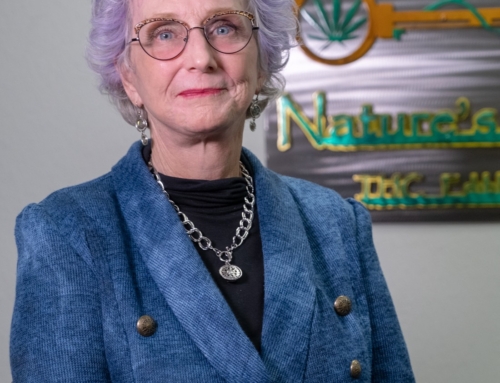
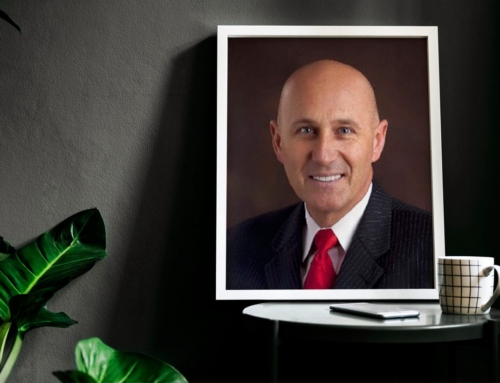
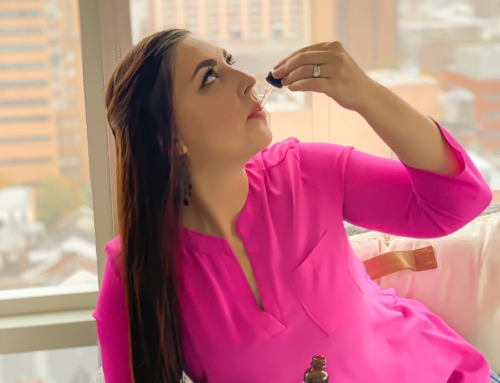

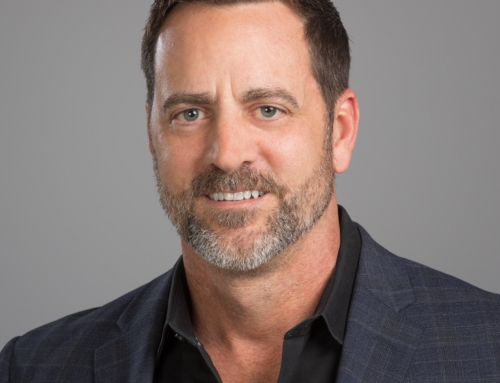
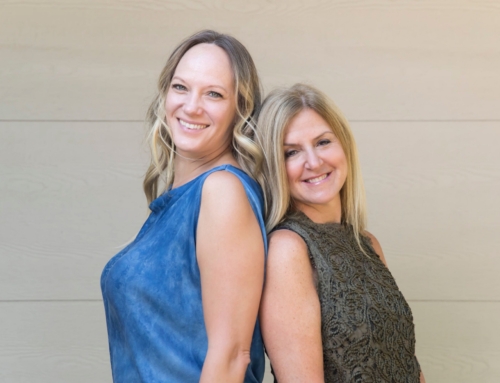
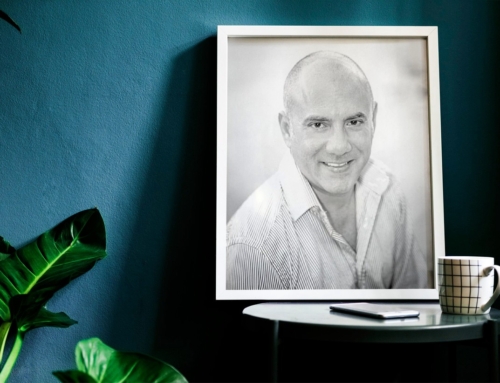
![“The potential to help people [in this industry] is enormous, but there’s still so much to learn.” – Ramon Alarcon, Witi](https://cf.lakesideremedy.com/wp-content/uploads/2020/12/1thj5ekUyxQ69iLz1JJyODg-scaled-e1607882756286-500x383.jpeg)
